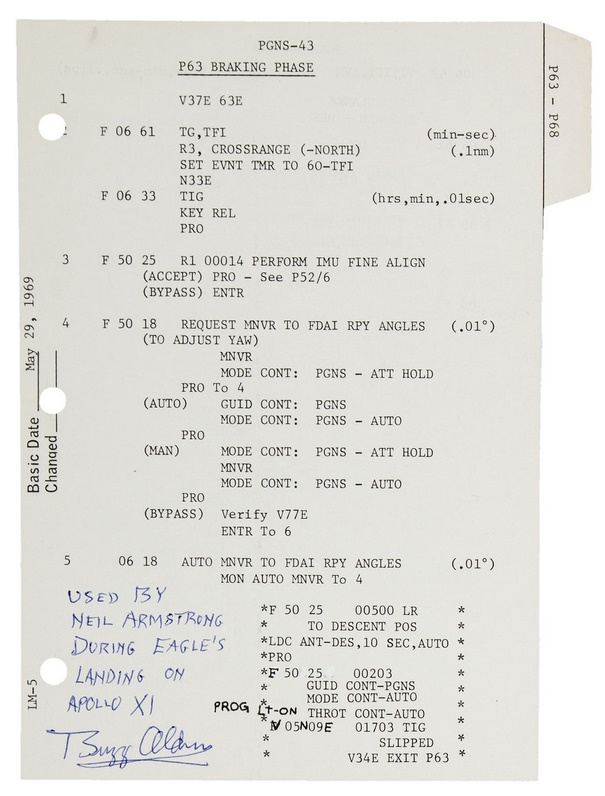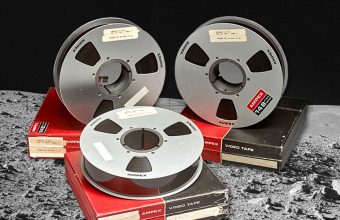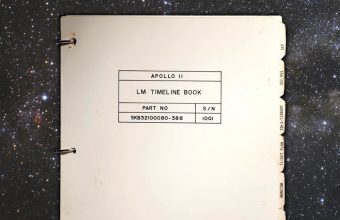A landing sequence document flown to the moon aboard Apollo 11 will cross the block in Dallas this month, as the star lot of Heritage Auctions’ Space Exploration sale.
The auction will offer three pages from the LM G and N Dictionary, the manual and checklist for the operation of the Lunar Module Primary Navigation and Guidance System.
Neil Armstrong and Buzz Aldrin used the exact steps listed in the dictionary to operate the lunar module computer, as they made their dramatic descent onto the surface of the Moon.
The pages are accompanied by a letter of authenticity by Buzz Aldrin himself, in which he describes the importance of the document in the crew’s dramatic landing on the lunar surface.
“These are the most significant pages from the entire dictionary, and from my view point, some of the most important pages available to us during the entire flight,” writes Aldrin. “These steps enabled the actual landing by Man on the surface of the Moon.”
Having previously sold by Bonhams in 2009 for $152,000, on the 40th anniversary of the Apollo 11 mission, the signed and space-flown pages are expected to achieve a similar six-figure sum as the 50th anniversary in 2019 grows ever closer.
“This was one of only a handful of human accomplishments that are recognized as an historic landmark by all the world’s citizenry and arguably the most important of those to occur in our lifetimes,” said a Heritage spokesperson. “It doesn’t seem a stretch to liken these pages to the logbook or navigation charts used by Christopher Columbus on his historic voyage to America.”
Further memorabilia from the Apollo 11 mission up for grabs will include a space-flown silver Robbins medallion from the personal collection of mission support crew member Jack Swigert; a flown 14K gold Mezuzah pendant with a Star of David on the front; and a flown 14K gold Ankh cross with a note of provenance from Aldrin.
The auction, which features more than 350 items spanning the history of space exploration, takes place on May 20.













